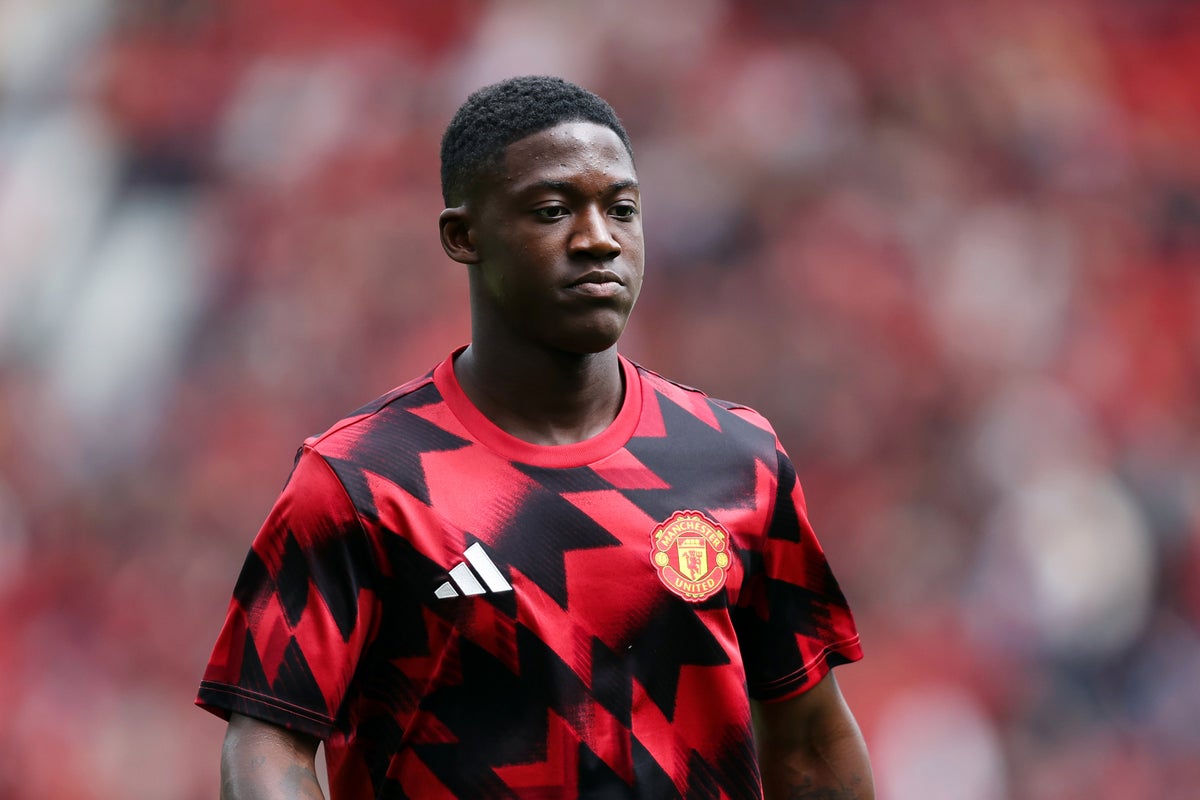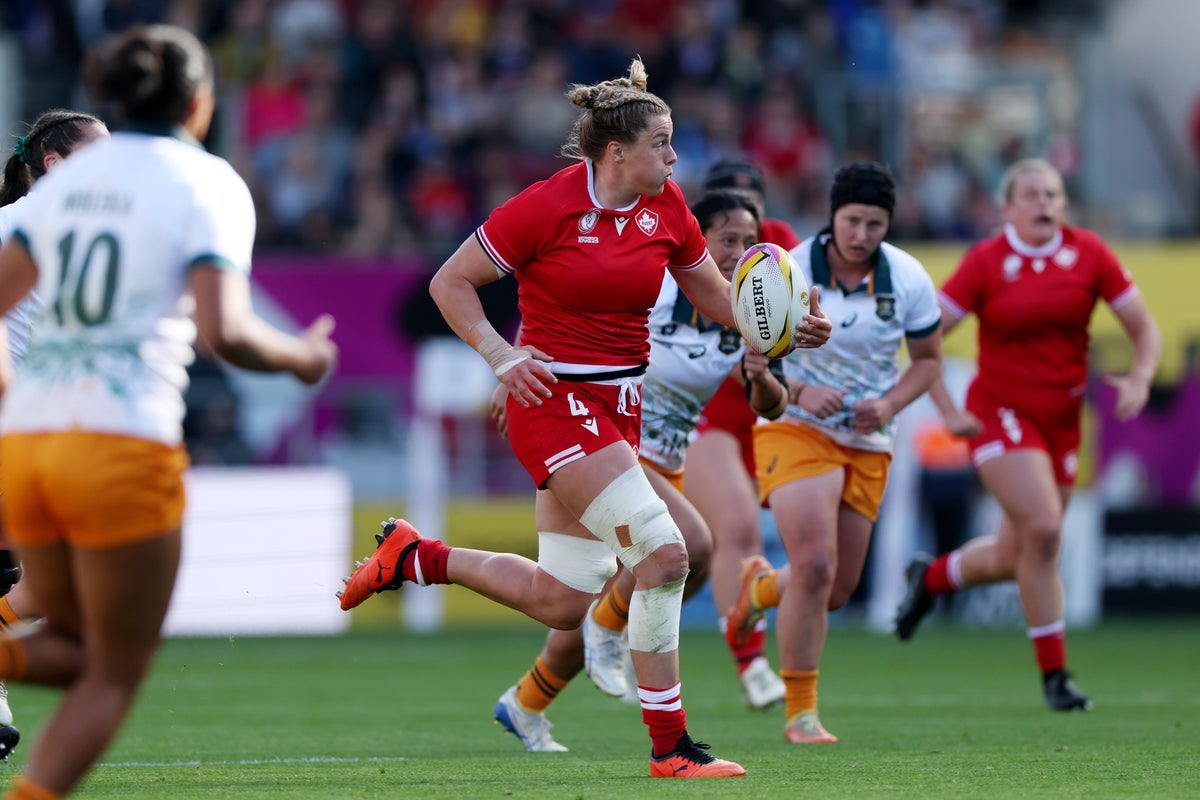Black Ferns, be warned – Canada are coming and, on this evidence, will be hard to stop. If the pre-tournament suggestion of being World Cup dark horses had rather belied the fact that Kevin Rouet’s were the third likeliest side to win this event, here was a statement showing to properly display why they are contenders. If it had always felt like they and New Zealand were on an inexorable collision course at the semi-final stage, it feels like Canada are gathering a head of steam as the near unstoppable force that will be required to knock out the Women’s Rugby World Cup’s perennial immovable object.
Where New Zealand had earlier been given a real fright by a fighting South Africa in Exeter, Australia could not make this much of a contest in Bristol. It was not that the Wallaroos were that bad, either, just blown away in a way that even they might not have expected. There was little surprise, though, of the identity of their tormentor in chief: Sophie de Goede, perhaps the world’s best player, who was exceptional even by her standards here.

While a backline bolstered by a number of Olympic sevens silver medallists often finished the tries off, Canada’s success all started up front – as it has done throughout this World Cup. In a sign of the forward might that Canada possess, they entered the quarter-finals with the best gainline success rate (61.2%) in the tournament, while showcasing real strength at the set-piece, too.
This is not new; it had been Canada, of course, who first pioneered the seven/one bench split in international rugby, utilising the tactic against England in the semi-final in 2022 a year before Rassie Erasmus and the Springboks deployed their super-sized Bomb Squad to wider acclaim. Head coach Rouet knows his side’s strengths – and backs them to show them.

While McKinley Hunt and Daleaka Menin form a fearsome propping pair, and Emily Tuttosi is one of the best nuts-and-bolts hookers in the game, it is in the back five of the pack particularly where Canada stand out. Their array of long-limbed, highly physical athletes is a real super-strength, both in the amount of ground they can cover around the park and at lineout time.
Their standard-bearer in that – and just about every – sense is De Goede, probably the most complete player in the world. Little more than a year removed from tearing her anterior cruiciate ligament, Canada’s superwoman is back to her almost omnipotent best. A tour de force first 20 minutes here featured two striding breaks through the heart of the Australia defence, two gorgeous bits of handling to set up tries for wings Asia Hogan-Rochester and Alysha Corrigan, and an opportunistic score of her own after reacting quickest to a loose ball a metre from the Australia line. By the time the lock converted Corrigan’s second from the left touchline, the game was all but done and dusted with an hour still to come.

Australia had at least registered early through wing Desiree Miller, but the syrup sweet rugby was largely coming from the Maple Leafs. Three times in the first half they fumbled with the line in sight, but a rumbling maul finished off by Hunt still meant a fifth try arrived before the interval.
No 8 Fabiola Forteza continued the rout before the heavens opened, a biblical downpour breaking up a match otherwise played largely in bright sunshine. Canada faded a little, and Australia, to their credit, did not wilt, holding firm for long periods in the second half until Karin Paquin completed Canada’s job. The Wallaroos’ journey at this World Cup is over, as is their time under head coach Jo Yapp. “The spine of this team is really young, so there’s a real opportunity for them,” Yapp reflected as she leaves her role, urging Rugby Australia to get behind the programme in the run-up to a home World Cup in four years time. “We’ve seen the growth. But the investment has to step up post this tournament to allow them to be genuine contenders.”
But Canada plough on into a meeting with the Black Ferns. The two sides have delivered a stone-cold classic at the Pacific Four Series in each of the the last two years, a 22-19 success for the North Americans in Christchurch in 2024 followed up by a 27-all draw in May. Next weekend’s semi-final could be very fun indeed.


